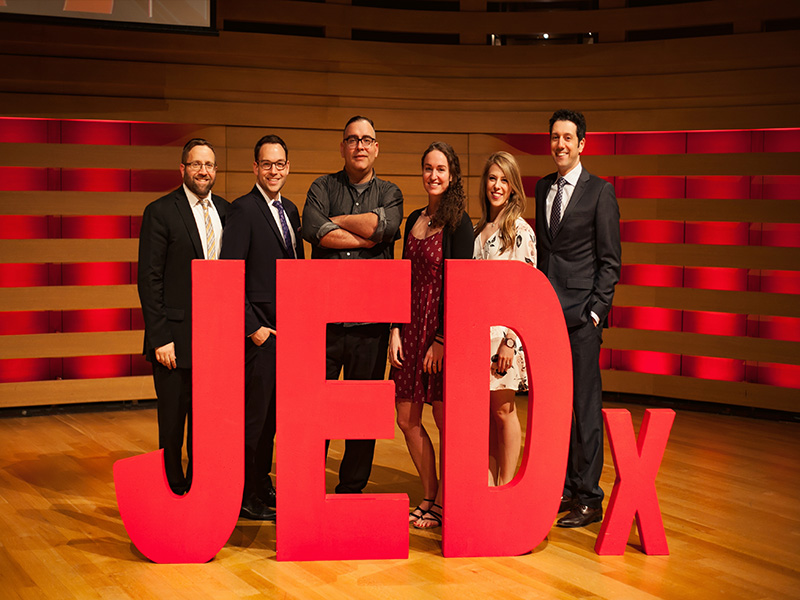Nearly 1,000 young people packed into a sold-out Koerner Hall in Toronto to talk about Jewish ethics on May 16.
The fifth annual JEDx, which stands for Jewish Ethics Defined, centred on the theme of “the power of one” and brought out high-profile speakers, such as Indigo founder and CEO Heather Reisman.
Based on the popular TEDx format, the event also served as a major fundraiser for The House, a Jewish non-profit based in Toronto. To illustrate the power of one, each individual who attended JEDx helped generate $360,000 for the organization.
But for The House’s executive director, Mike Savatovsky, JEDx 2017 – chaired by Adam Hummel and Jenna Kellner Izraelski – was also about building connections and delivering high-quality content.
“It really boils down to the opportunity to learn, to be inspired, to check our perspective, to learn from people who’ve had amazing experiences, to motivate us to do a little bit more, that’s a very Jewish way,” he told The CJN.
READ: THE JEWISH COMIC WHOSE FATHER TOLD HIM ‘JOY DOESN’T EXIST’
A cocktail party and dessert reception bookended the evening, providing attendees with ample opportunity to schmooze. Inside the auditorium, six speakers, plus a mentalist known as Coby, took to the stage.
Reisman presented first, sharing stories of change makers throughout history, such as Theodor Herzl, Albert Einstein and the youngest ever Nobel Prize laureate, Malala Yousafzai.
“But,” she said, “the power of one is only rarely, only rarely about big ideas, or little ideas that turn into big ideas. It is so much more about the day-to-day decisions to just be a mensch.”
Israeli Joseph Gitler, however, took a simple idea – diverting leftover food to those in need – and transformed it into Leket, a network he described as the FedEx for rescued food. Yet, even though his organization works to feed 200,000 Israelis each week, he noted that it’s all been possible thanks to many “ones” working together.
Activist, photographer and entrepreneur Maayan Ziv spoke about how she’s building an app that uses crowdsourcing to catalogue accessible spaces around the world; she also got the audience to reconsider what accessibility means.
“We think accessibility is only for people with disabilities, but I want to challenge that notion because people actually aren’t disabled,” she said. “It’s our environments that are disabling.”
Megan Phelps-Roper, a former member of the vitriolic Westboro Baptist Church, and David Abitol, the founder of the popular Jewish blog Jewlicious, chronicled their friendship, which began on Twitter. Through 140-character conversations, Phelps-Roper widened her worldview and eventually left her family and their church to pursue a life based in tikkun olam.
Justin Korda, the executive director of ROI Community, shared his four “rules for affecting change through the power one.”
And Rabbi Rafi Lipner, president of The House, closed the night by reminding the audience that it’s not enough to just be inspired after an evening like JEDx. The key is taking one step forward and doing something with that motivation.
